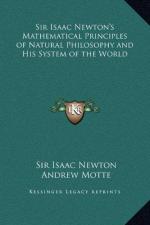|
This section contains 6,956 words (approx. 24 pages at 300 words per page) |

|
SOURCE: "Voltaire and the Enlightenment Image of Newton," in History & Imagination: Essays in Honor of H. R. Trevor-Roper, Hugh Lloyd-Jones, Valerie Pearl, Blair Worden, eds., Holmes and Meier Publishers, 1981, pp. 218-32.
In the following essay, Rattansi analyzes Voltaire's interest in Newton and his scientific writings, tracing the impact Voltaire had on the public's acceptance of Newton's conception of the universe, as opposed to that of René Descartes.
While the publication of the Principia Mathematica in 1687 secured almost universal admiration for the scientific and mathematical genius of Sir Isaac Newton, his contemporaries differed widely in their assessments of what he had achieved in his masterpiece. Edmond Halley placed Newton's genius nearest to the gods in the ode he prefixed to that work. One of Newton's greatest scientific contemporaries, Christian Huygens, was astonished, however, that Newton should have chosen to rear his magnificent structure or such a 'manifest absurdity' as...
|
This section contains 6,956 words (approx. 24 pages at 300 words per page) |

|


